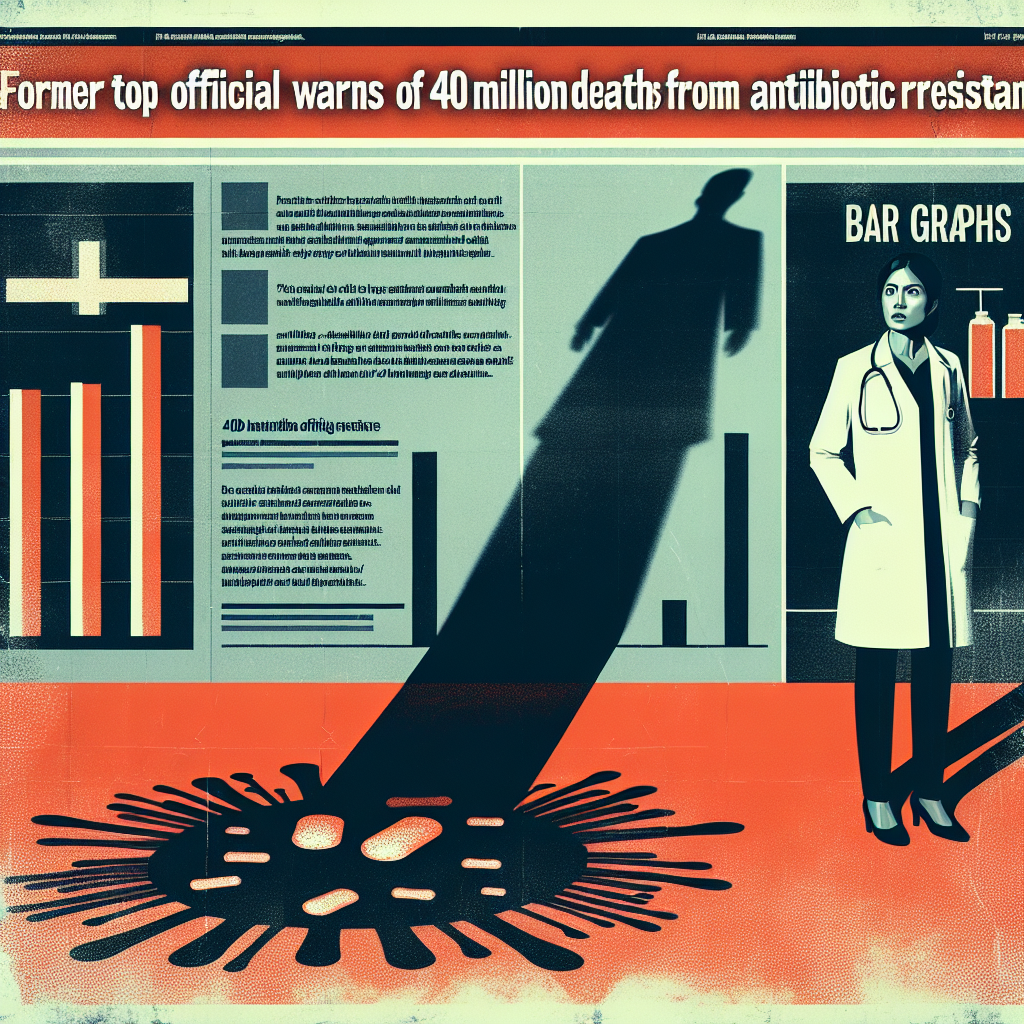Former UK Health Chief Warns of 40 Million Deaths from Antibiotic Resistance
Former UK Health Chief Warns of 40 Million Deaths from Antibiotic Resistance
The Growing Threat of Antibiotic Resistance
Antibiotic resistance is emerging as a critical global health threat, with former UK Health Chief, Dame Sally Davies, sounding the alarm on its potentially catastrophic impact. She warns that without urgent action, antibiotic resistance could lead to 40 million deaths worldwide by 2050.
Key Insights from the Warning
- Global Health Crisis: Antibiotic resistance is projected to surpass cancer as a leading cause of death, posing a severe threat to modern medicine.
- Economic Impact: The economic burden of antibiotic resistance could reach trillions of dollars, affecting healthcare systems and economies globally.
- Urgent Action Required: Immediate and coordinated efforts are needed to develop new antibiotics, improve infection prevention, and promote responsible antibiotic use.
Factors Contributing to Antibiotic Resistance
Several factors are accelerating the spread of antibiotic resistance, including:
- Overuse of Antibiotics: Excessive and inappropriate use of antibiotics in humans and animals is a major driver of resistance.
- Lack of New Antibiotics: The development of new antibiotics has slowed, leaving few options to combat resistant infections.
- Poor Infection Control: Inadequate infection prevention measures in healthcare settings contribute to the spread of resistant bacteria.
Strategies to Combat Antibiotic Resistance
To address this looming crisis, experts recommend a multifaceted approach:
- Research and Development: Invest in the development of new antibiotics and alternative treatments.
- Global Collaboration: Foster international cooperation to share data, resources, and strategies.
- Public Awareness: Educate the public and healthcare professionals about the responsible use of antibiotics.
Conclusion
The warning from Dame Sally Davies highlights the urgent need for global action to combat antibiotic resistance. Without intervention, the world faces a future where common infections become untreatable, leading to millions of deaths and significant economic consequences. By prioritizing research, collaboration, and education, we can mitigate this threat and safeguard public health.














